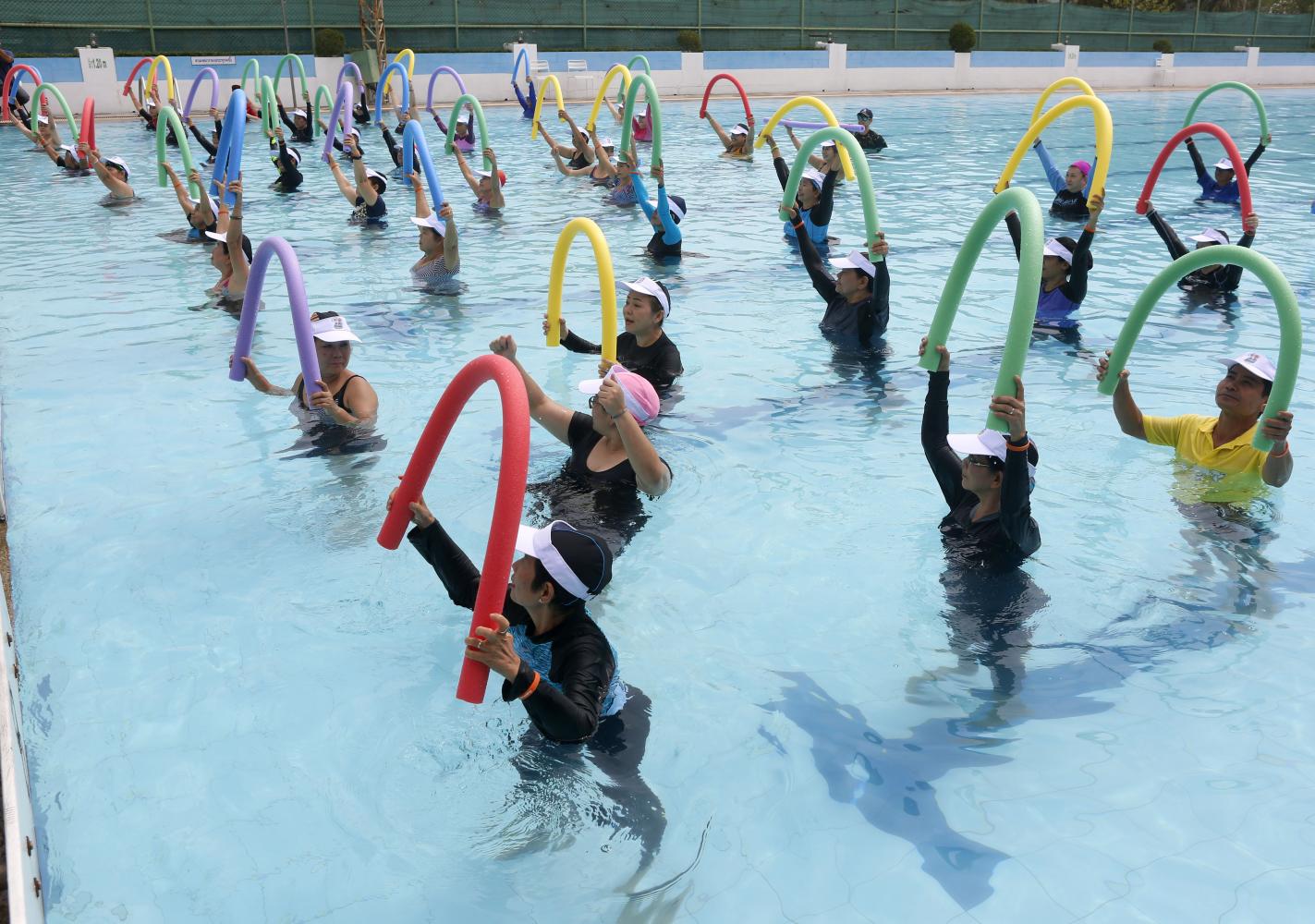
A third of elderly people in Thailand suffer from falls each year, with 3,000 injuring their hips and two losing their lives on average as a result, says a new survey released by the Department of Disease Control.
Women of retirement age and older are 1.6 times more likely than men to take a tumble, the research showed. Overall, about two thirds of falls affecting this age demographic happen on flat surfaces, and only 5% take place on steps, the department found.
Risk factors include a lack of balance, weak muscles, poor or irregular eyesight, or side effects from taking multiple types of medicine, it said.
"Strengthening the body's muscles is the key to preventing elderly people from falling," Suwanchai Wattanayingcharoenchai, the department chief, said on Wednesday at the launch of a health-promotion campaign targeting people in their greying years.
"But senior citizens need to observe specific types of physical exercise to become strong. We believe the government and local administrative bodies can help by building more swimming pools for them," he added.
Called "Stepping to Elderly Age: Do Water Exercise to Prevent Falling Down", the campaign is is being jointly run by the National Institute of Emergency Medicine and Thammasat University's Faculty of Allied Health Sciences. It aims to promote "hydrotherapy" and other water cures for vulnerable people in their 60s and older.
Dr Suwanchai said the kingdom is becoming a greying society and all stakeholders must work together to create an environment and infrastructure conducive to longer, healthier lives.
Plaiwan Suttanon, of the faculty at Thammasat, said hydrotherapy is undertaken in a swimming pool but is quite distinct from swimming. "It has different positions, specifically designed to create both muscle strength and body balance," she said, recommending two or three sessions a week of 30-45 minutes.
"This can help reduce the rate at which elderly people suffer from falls because it improves flexibility and movement," she said.
"But one of the main benefits is that this kind of therapy is gentle and doesn't cause any muscle pain, because water can perfectly support the weight of a person's body," she added, noting how it was well-suited for people with painful or weak joints.
Monthip Kalasin, 64, adopted a regimen of exercising in water a year ago. She credited this with helping her recover from problems associated with weak knee joints.
"The hydrotherapy has made me feel much better. It really is ideal for elderly people with joint problems," she said.